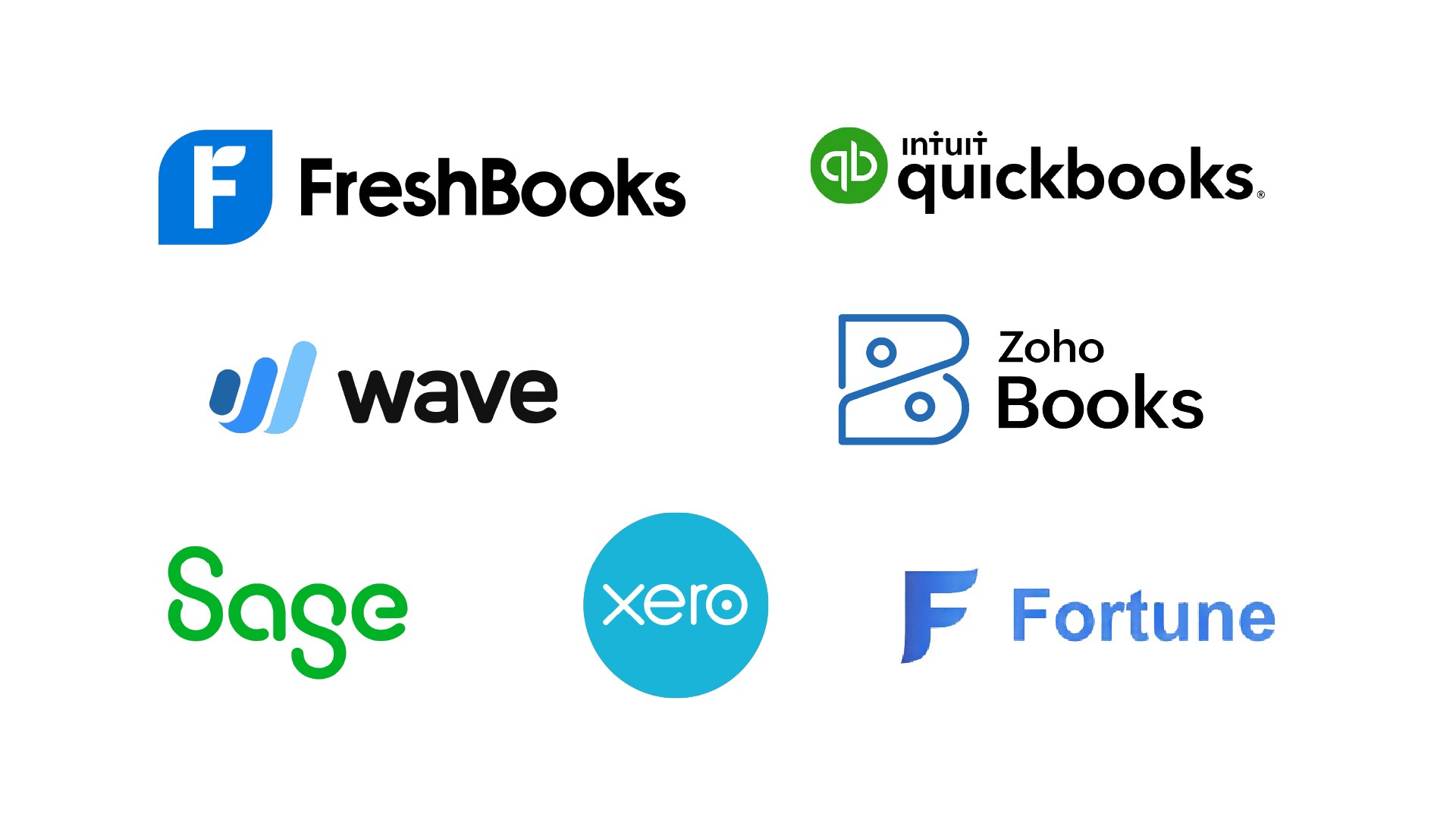
Back to Blog
Share Post:

Accounting
Jan 3, 2024
Future Developments: AI and Machine Learning in Accounting SoftwareAccounting history evolution analysis, historic trends, and studies
AI, or Artificial Intelligence, is smart computer programming that imitates human thinking. It enables machines to learn from experience and perform tasks without advanced programming.
AI has two types: narrow AI, designed for specific tasks like voice assistants, and general AI, mimicking human intelligence.
However, machine learning, a subset of AI, allows systems to learn patterns and make decisions. Popular in various fields, AI influences daily life through virtual assistants, recommendation systems, and autonomous vehicles.
Moreover, understanding AI's basics is important for understanding its impact on modern technology and society.
Understanding Machine Learning
Machine Learning is a computerized approach to problem-solving, where systems learn patterns and make decisions without explicit programming. It's a revolutionary field reshaping technology.
How does it work?
In Machine Learning, algorithms analyze data, identifying patterns to make predictions or decisions. These algorithms improve accuracy over time through continuous exposure to new information.
Types of Machine Learning
Supervised Learning: Algorithms learn from labeled data, predicting outcomes based on established patterns. Used for tasks like image recognition or spam filtering.
Unsupervised Learning: Algorithms work with unlabeled data, finding inherent patterns without predefined outcomes. Clustering and association tasks fall under this category.
Reinforcement Learning: Systems learn by interacting with an environment. They receive feedback through rewards or penalties, refining their actions for better outcomes.
Applications
Machine Learning finds applications across various domains. From healthcare diagnostics to recommendation systems in e-commerce, its impact is huge.
Challenges
Despite its advancements, Machine Learning faces challenges, including algorithm bias and the need for massive datasets. Ethical considerations are crucial to ensure responsible implementation.
However, as technology advances, Machine Learning's role will expand, influencing diverse sectors. Its evolution promises an exciting future, shaping how we interact with and benefit from digital systems.
Accounting Software - A Deep Dive
Accounting Software simplifies financial management by automating tasks that were once manual and time-consuming. It's a powerful tool that every business, regardless of size, can leverage for streamlined operations.
1. Streamlining Financial Tasks
Accounting Software streamlines the complex web of financial tasks. From recording transactions to generating financial statements, the software simplifies processes, reducing the risk of errors and ensuring accuracy.
2. Automated Bookkeeping
One key feature is automated bookkeeping. The software records financial transactions in real-time, maintaining a comprehensive ledger that reflects the financial health of a business without manual intervention.
3. Efficient Invoicing
Invoicing becomes efficient with accounting software. Businesses can easily create and send professional-looking invoices, track payments, and manage receivables seamlessly. This not only saves time but also improves cash flow management.
4. Inventory Management Made Easy
For businesses dealing with products, accounting software often includes inventory management features. It helps monitor stock levels, prevent overstocking or stockouts, optimize supply chains, and ultimately save costs.
5. Tax Compliance Simplified
Staying compliant with tax regulations is crucial. Accounting software automates tax calculations and ensures that businesses adhere to tax laws, reducing the risk of penalties and audits.
6. User-Friendly Interface
Most accounting software boasts a user-friendly interface, making it accessible to individuals with varying levels of financial expertise. The intuitive design allows users to use the software with ease.
Overall, accounting software is a fundamental tool for businesses aiming to enhance financial efficiency. From automated bookkeeping to real-time reporting, it's a comprehensive solution that empowers businesses to thrive in today's competitive landscape.
How AI/ML Is Impacting Accounting?
In accounting, Artificial Intelligence (AI) and Machine Learning (ML) are no longer different concepts but tangible forces reshaping the profession. These technologies, once confined to sci-fi narratives, are now actively influencing the way financial tasks are managed and executed.
Here's Why This Is Good News For Accounting Software
Integrating AI and ML into accounting software brings a wave of efficiency and accuracy. Everyday boring and repetitive tasks, such as data entry and reconciliations, are no longer time-consuming. Moreover, automation, driven by smart algorithms, is becoming more popular, leaving accountants with more time for strategic thinking and analysis.
Why Should Accountants Embrace AI/ML?
1. Enhanced Accuracy
AI/ML algorithms possess a remarkable ability to process vast datasets without causing errors. This translates to heightened accuracy in tasks like number crunching and financial analysis.
2. Time-Saving
With AI handling repetitive tasks, professionals can focus on tasks that demand a human touch, like interpreting financial trends or advising clients strategically.
3. Fraud Detection
AI algorithms possess a keen eye for anomalies. This means an improved ability to detect irregularities or potential fraud within financial data in accounting. The technology can swiftly identify patterns that may exclude the need for human scrutiny.
4. Adaptive Learning
ML, a subset of AI, enables systems to learn from data and adapt. This adaptability ensures that accounting software evolves alongside changing financial landscapes, staying relevant and effective over time.
5. Predictive Analysis
AI's predictive powers allow accountants to move beyond historical data analysis. By forecasting future trends based on existing patterns, professionals can provide clients with proactive insights, aiding in strategic decision-making.
You've Already Experienced AI/ML
Whether you realize it or not, if you've interacted with modern accounting software, you've encountered AI and ML. From automated categorization of expenses to intelligent suggestions for optimizing tax strategies, these technologies are seamlessly integrated into the tools you use.
However, the impact of AI and ML on accounting is not a distant prospect; it's a present reality. Accountants who accept these technological advancements find themselves not just keeping up with the times but actively shaping the future of financial management.
As AI and ML continue to refine their capabilities, the symbiotic relationship between accountants and technology promises more efficient, accurate, and forward-thinking finance.
Impact of Biased Data and Deductive Reasoning
1. Auditability
Biased data and deductive reasoning can compromise the auditability of processes. Unchecked biases can distort financial information, leading to inaccurate assessments of a company's financial health. This undermines the reliability of audits, potentially causing financial discrepancies to go unnoticed.
2. Managing Expenses Efficiently
Incorporating biased data into accounting systems can skew expense management. When influenced by preconceived opinions, deductive reasoning may misinterpret financial patterns, affecting budgeting and resource allocation. Accurate financial decision-making requires unbiased data for precise expense analysis.
3. Challenges in Adopting AI/ML in Accounting
The integration of biased data poses challenges in adopting Artificial Intelligence (AI) and Machine Learning (ML) in accounting practices. Biases can reinforce existing inequalities and affect the effectiveness of automated systems. Overcoming these challenges necessitates scrutiny of data sources.
4. Change Your Passwords Frequently
To reduce the impact of biased data, individuals must actively participate in securing their financial information. Regularly changing passwords is a simple yet effective measure.
This proactive approach helps protect sensitive data from unauthorized access, minimizing the potential impact of biased information.
5. Encrypt Your Data
Another imperative safeguard is data encryption. Encrypting financial data adds an extra layer of protection, making it challenging for unauthorized entities to decipher sensitive information.
This practice is important in preventing the misuse of biased data and ensuring the confidentiality and integrity of financial records.
Best AI/ML Accounting Software In 2024
Fortune App stands out as the premier AI/ML accounting software of 2024, revolutionizing business financial management.
Fortune App Accounting Software
1. AI-Driven Financial Insights
Employing cutting-edge artificial intelligence, Fortune App delivers unparalleled depth in financial insights. It actively analyzes transactions, identifies patterns, and generates comprehensive reports, empowering users with real-time data.
2. Efficient Record-Keeping
Gone are the days of tedious manual record-keeping. Fortune App streamlines the process, ensuring accuracy and efficiency. It simplifies transaction recording and categorization, saving time and reducing the risk of errors.
3. Smart Forecasting
Thanks to its advanced machine learning capabilities, Fortune App goes beyond basic analysis. It predicts financial trends, enabling proactive decision-making. Businesses can anticipate challenges and capitalize on opportunities, staying ahead in the dynamic market.
4. User-Friendly Interface
Fortune App prioritizes simplicity. Its interesting interface makes it accessible for users with varying levels of expertise. There is no need for extensive training – users can harness the power of AI effortlessly.
5. Secure Financial Management
With a robust security system, Fortune App prioritizes data protection. Encrypted transactions and secure access ensure that sensitive financial information remains confidential, providing peace of mind to users.
In summary, Fortune App redefines accounting software, leveraging AI and ML to provide an unparalleled financial management experience in 2024.
Bottom Line
The future of accounting software holds exciting prospects with the continued integration of AI and Machine Learning. Expect enhanced automation, smarter decision support, and increased data accuracy.
As these technologies evolve, businesses can anticipate more efficient financial management tools that adapt to evolving industry needs, making way for transformative advancements.
FAQs
1. How Is AI Used In Accounting?
AI is used in accounting to automate repetitive tasks, enhance data accuracy, and provide valuable insights. It streamlines processes like data entry, categorization, and reconciliation, freeing up time for accountants to focus on more complex tasks and strategic decision-making.
2. What Is The Role Of AI/ML In Accounting?
The role of AI/ML in accounting is very important. Machine Learning algorithms analyze large datasets to identify patterns, trends, and anomalies, enabling more accurate financial forecasting and risk management. AI assists in automating routine tasks, reducing errors, and enhancing the overall efficiency of accounting processes.
3. What Is An Example Of AI In Accounting Software?
An example of AI in accounting software is the use of machine learning for expense categorization. The software learns from historical data, automatically categorizing expenses based on patterns, ultimately minimizing manual effort and errors in the expense management process.
Share Post:




